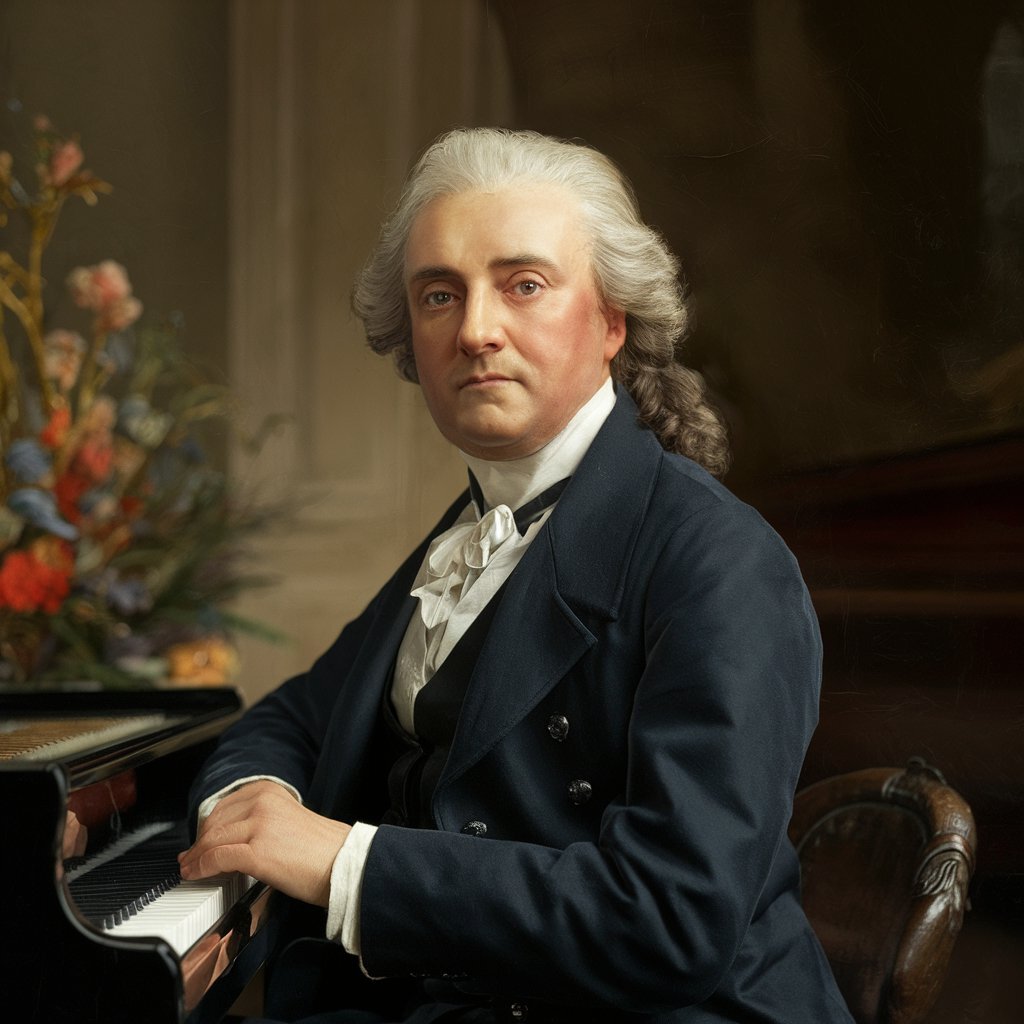
Ever wondered about the man behind the mesmerizing nocturnes and heart-stirring polonaises that have enchanted audiences for centuries? Frederic Chopin, a name synonymous with piano mastery and romantic expressiveness, has a story filled with intrigue, talent, and a dash of mystery. Born in Poland in 1810, this musical genius left an indelible mark on the world with compositions that continue to captivate and inspire. But what about the man himself? Was he just a composer, or was there more to his story? From his early prodigious talents to his international acclaim and untimely demise, let's peel back the layers of history to uncover some truly amazing facts about Frederic Chopin. Ready to be surprised? Let's hit the keys and discover the man behind the music.
Key Takeaways:
- Frederic Chopin, a musical prodigy, started playing the piano at six and composing at seven. His emotional and technically precise compositions continue to captivate audiences and inspire musicians worldwide.
- Chopin's legacy lives on through his enduring influence on classical music, his innovative compositions, and his ability to convey profound emotion through music. His works continue to be celebrated and studied globally.
The Early Years of Frederic Chopin
Born on March 1, 1810, in ?elazowa Wola, Poland, Frederic Chopin was a musical prodigy from a very young age. His talents in music were evident when he started playing the piano at just six years old and was composing by the age of seven. Chopin's early exposure to music came from his mother, who was a piano teacher, and his father, who played the flute and violin.
-
Chopin gave his first public concert at the age of eight, showcasing his remarkable talent to an astonished audience.
-
By the time he was 20, Chopin had completed his musical education and started his journey to become one of the most celebrated composers and pianists of his time.
Chopin's Move to Paris
In 1831, Chopin moved to Paris, which was then the heart of Europe's cultural and artistic life. This move proved to be a turning point in his career. Paris was home to many great artists and musicians of the time, providing Chopin with endless inspiration and opportunities.
-
Shortly after his arrival in Paris, Chopin befriended Franz Liszt, another virtuoso pianist, and composer, who would become one of his closest allies.
-
Chopin never returned to Poland after his move, making Paris his home until his death. His music, however, always retained a strong connection to his Polish roots.
Chopin's Unique Style
Chopin's compositions are renowned for their emotional depth, technical precision, and distinctive use of the piano. He primarily composed for solo piano, and his works are considered some of the most challenging and evocative pieces in the classical repertoire.
-
Chopin is credited with the invention of the instrumental ballade, a form that combines narrative drama and lyrical expression.
-
His music is characterized by its use of rubato, a technique that involves flexible timing to enhance the expressive quality of the music.
Chopin's Health and Demise
Throughout his life, Chopin struggled with poor health. His frail condition affected his ability to perform, limiting the number of public appearances he could make.
-
Chopin was diagnosed with tuberculosis, which was a common and often fatal disease in the 19th century.
-
He died on October 17, 1849, at the age of 39. Despite his relatively short life, Chopin's influence on the world of music is immeasurable.
Chopin's Legacy
Chopin's music has endured over the centuries, captivating audiences with its beauty and complexity. His works are a staple of piano repertoire and continue to be studied, performed, and cherished by musicians and music lovers alike.
-
The International Chopin Piano Competition, held in Warsaw, Poland, is one of the most prestigious music competitions in the world, dedicated to promoting his music.
-
Chopin's heart is preserved in a pillar of the Holy Cross Church in Warsaw, a testament to his enduring connection to his homeland.
-
His compositions, including nocturnes, mazurkas, waltzes, and polonaises, have become synonymous with the Romantic era's musical genius.
-
Chopin's influence extends beyond classical music; his works have been adapted into ballets, films, and even modern pop culture.
-
Despite his fame, Chopin was known for his modesty and dislike of public performances, preferring intimate salon concerts instead.
-
His relationship with French writer George Sand (Aurore Dupin) was a significant part of his life, providing him with emotional support during his health struggles.
-
Chopin's music is often associated with the concept of "pianistic poetry," due to its expressive depth and nuance.
-
The composer's preference for the piano as his primary instrument helped elevate the piano's status in the 19th century, showcasing its capabilities as a solo instrument.
-
Chopin's burial site, at the Père Lachaise Cemetery in Paris, remains a place of pilgrimage for music lovers from around the world.
-
His works have inspired countless composers, pianists, and music scholars, cementing his legacy as one of the greatest composers in history.
-
Chopin's innovative compositions and unique style have made him a central figure in the study of Romantic music, influencing generations of musicians.
-
Despite the passage of time, Chopin's music retains its power to move and inspire, proving that true artistry is timeless.
-
The composer's meticulous approach to technique and expression in his compositions has set a high standard for pianists, challenging them to achieve a balance of precision and emotion.
-
Chopin's contributions to music theory and pedagogy continue to be a subject of study and admiration among music educators and students.
-
His ability to convey profound emotion through music has made Chopin's compositions a favorite choice for film scores, adding depth and nuance to cinematic narratives.
-
The annual Chopin Festival in Duszniki-Zdrój, Poland, attracts musicians and fans from around the globe, celebrating his life and works through concerts and competitions.
-
Chopin's enduring popularity is evidenced by the numerous recordings of his works, performed by some of the world's leading pianists.
-
Finally, Frederic Chopin's legacy is not just in his compositions but in the inspiration he provides to those who seek to express the inexpressible through music, making him an eternal figure in the world of classical music.
A Final Note on Chopin's Legacy
Frederic Chopin, a master of the Romantic era, left an indelible mark on the world of classical music. His compositions, brimming with emotion and technical prowess, continue to captivate audiences and inspire musicians. Chopin's innovative use of the piano, his distinctive melodic lines, and his deep understanding of harmony have secured his place as one of the most influential composers in history. Beyond his music, Chopin's life story, from his prodigious talent in childhood to his struggles with health and his passionate relationships, adds layers of intrigue to his legacy. As we reflect on his contributions, it's clear that Chopin's artistry resonates just as powerfully today as it did in the 19th century. His works, a testament to his genius, ensure that his spirit lives on in concert halls, classrooms, and homes around the world.
Frequently Asked Questions
Was this page helpful?
Our commitment to delivering trustworthy and engaging content is at the heart of what we do. Each fact on our site is contributed by real users like you, bringing a wealth of diverse insights and information. To ensure the highest standards of accuracy and reliability, our dedicated editors meticulously review each submission. This process guarantees that the facts we share are not only fascinating but also credible. Trust in our commitment to quality and authenticity as you explore and learn with us.


